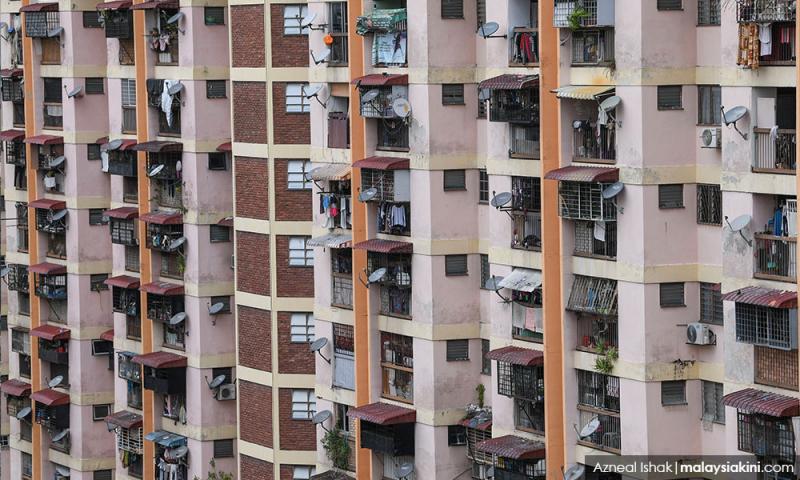LETTER | M'sians deserve affordable housing with shared prosperity
LETTER | The shortage of affordable housing is one of the typical issues haunting Malaysians. The availability of better-paying jobs and various business opportunities in the urban areas has caused rural-to-urban migration to ever-expanding cities in Malaysia.
As the urban population continuously grows, land scarcity has caused property prices to rise, making housing less affordable for most urban dwellers, especially for below 40 percent (B40) households.
Recently, the Better Malaysia Foundation (BMF) has proposed to develop apartments in the centre of the city with a sale price of RM120,100 to RM300,000 with an area from 450 sq ft to 900 sq ft. The development plan's primary purpose is for affordable housing with a single vision - to help the government achieve the homeownership aspirations of B40 groups.
However, the specification of the BMF apartments does not meet the specification of affordable housing of adequate quality and location at reasonable costs. The United Nations Universal Declaration of Human Rights recognises that access to decent, affordable housing is fundamental to people's health and well-being and the smooth functioning of economies. It is the base from which solid and positive communities are built, with better opportunities for equitable outcomes for economy, education, and health for individuals, families, and communities.
According to the Shared Prosperity Vision 2030 (SPV2030), the specifications of affordable housing not only look at the low cost of building a house and the ability of households to own the house. It also includes housing that is adequate in quality and location, with reasonable price.
In SPV2030, the aim is to provide a decent standard of living to all Malaysians. Safe, decent, and affordable housing plays a critical role in helping families achieve a decent standard of living. Quality housing provides families with a safe and comfortable space for them to foster the skills and confidence needed to invest in themselves and their communities.
On the other hand, housing with less than 40 sq m of indoor floor space per additional person causes overcrowding and can lead to several health risks (for example, those related to sanitation) and emotional stress from lack of privacy and personal freedom. These points are the main impetus for affordable housing with decent standard of living under SPV2030.
SPV2030 does not use income as a benchmark in labelling whether housing is affordable or not, but affordable housing is defined as 70 percent of the median house price in each state in Malaysia. So, for example, the affordable house price in Johor is RM248,500, or 70 percent of RM355,000 in 2019.
In addition, SPV2030 also defines an affordable domicile depending on the ability of the household to accept the cost of buying the house. SPV2030 allocates monthly payments, or monthly affordable housing costs less than 30 percent of a buyer's monthly income. This is more directly aimed at purchasing a home.
In the current situation, the household debt to GDP ratio is already hitting 93.3 percent, which shows that Malaysia's household is already mired in debt, even before such widespread homeownership and loan uptakes were put forward under BMF proposals. Higher indebtedness could lead to problems like in 2007-08 that hit the US, that is, subprime mortgage crisis.
Affordable housing should not only be seen as property ownership. It must also strongly mirror the community's needs of other things such as convenience, safety, positive social community, decent space, and affordable costs. Thus, housing is an essential component in achieving a decent standard of living under SPV2030.
A dark future would loom over us if we were to accept the business-as-usual proposals of BMF, PR1MA and others. If we accept that a cramped 900 sq ft house fits our aspiration of an affordable home of the future, we must think further about how we want our future to be. With its abundance of land, Malaysia should not emulate Hong Kong with its squalid and pitiful housing situation. We deserve a future of shared wealth, shared prosperity, and shared luxuries.
AMIRUL HAMZA ABDULLAH is research analyst, Institut Masa Depan Malaysia.
The views expressed here are those of the author/contributor and do not necessarily represent the views of Malaysiakini.
RM12.50 / month
- Unlimited access to award-winning journalism
- Comment and share your opinions on all our articles
- Gift interesting stories to your friends
- Tax deductable
